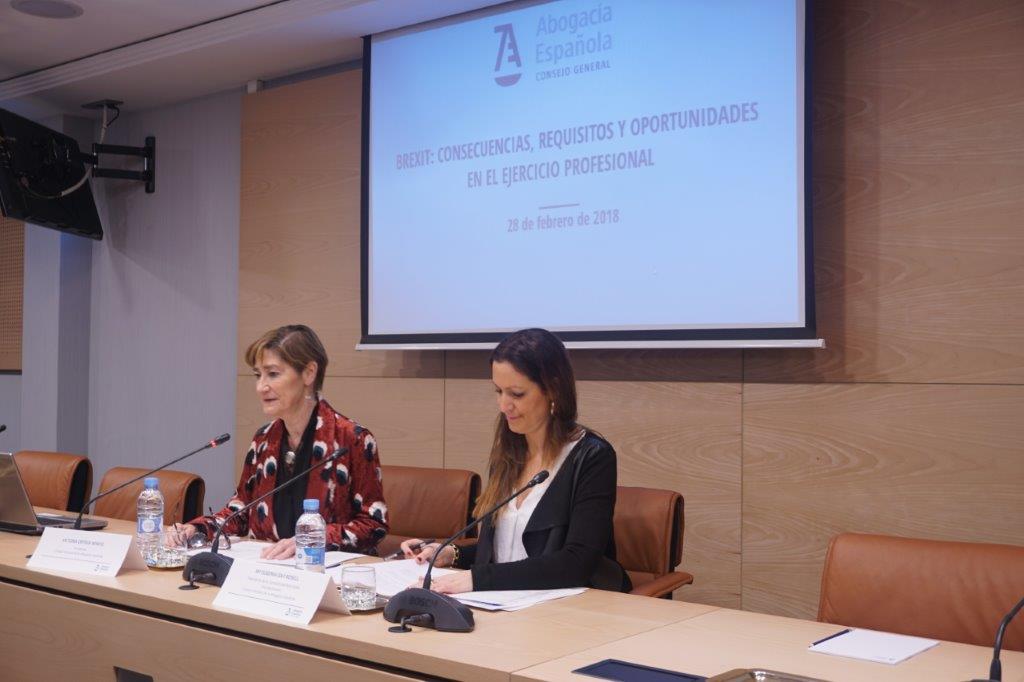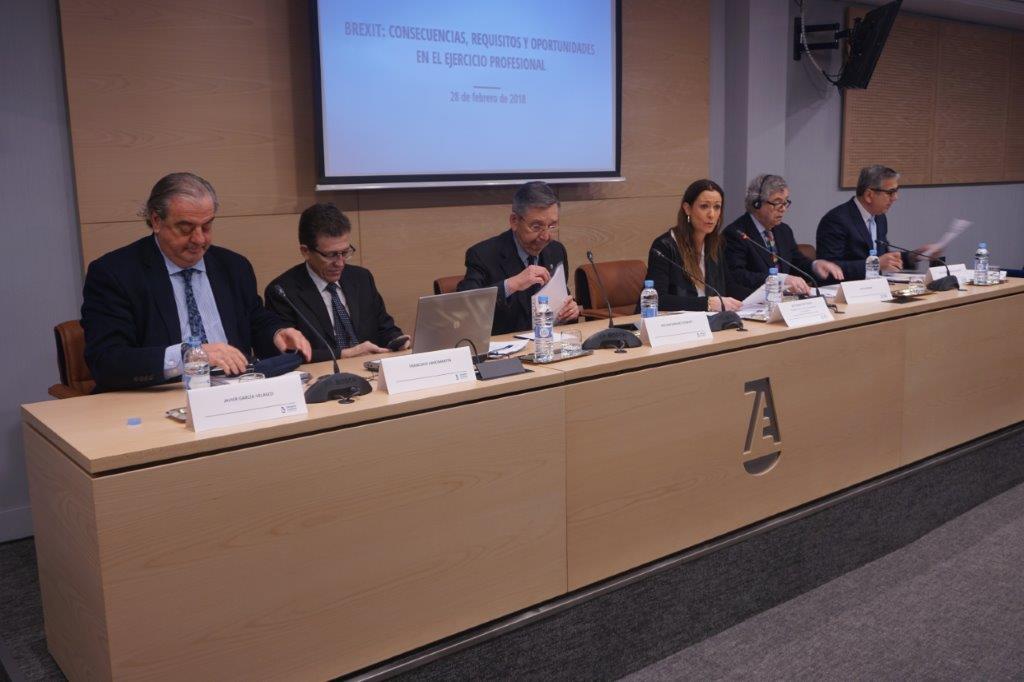
Victoria Ortega, on Brexit: “The legal profession is key to creating a framework of legal security”
“The legal profession is a key sector for the Brexit negotiations to be carried out within a framework of legal certainty.” With these words, the president of the General Council of Spanish Lawyers, Victoria Ortega, inaugurated the Conference 'Brexit: consequences, requirements and opportunities in professional practice' that took place on February 28 in the assembly hall of the General Council of the Spanish Lawyers. Spanish Lawyers (Paseo de Recoletos 13).
Victoria Ortega also highlighted that “Spanish Law seeks to be a tool for equitable economic and social development through law, which is the solid foundation on which it is based.” With this first day on Brexit, “we intend to position the Legal Profession as an instrument for improving the relations of Spain and the EU with the United Kingdom,” said the president of the General Council of the Spanish Legal Profession.
The first round table, moderated by María Eugènia Gay, president of the International Relations Commission of the General Council of Spanish Lawyers, addressed access to the practice of regulated professions in Spain from foreign degrees, with special dedication to the legal profession.

Javier García-Velasco, advisor to the Undersecretary of the Ministry of Education, Culture and Sports, made a general approach to the procedures for recognizing foreign degrees through homologation (highlighting the uniqueness of the Spanish system and the confusion between academic title and professional title). , validation (partial recognition and not of the title, whose competence lies with the universities) and recognition by community directives that guarantee freedom of movement. He subsequently reviewed the professional practice of law and the application of the Access Law.
For his part, David Greene, president of the International Affairs Commission of The Law Society, highlighted that for many Britons Brexit is an obsession and given the impossibility of return "we talk about opportunities." He recalled the memorandum of understanding between the General Council of the Spanish Bar and the Law Society of England and Scotland (MORE INFORMATION). Greene assured that the legal profession in England is governed by the Legal Services Act 2007 and that the regulatory authority for solicitors emerged from the Law Society itself, whose main objective is the protection and defense of public interests.
The British representative assured that there are opportunities for Spanish lawyers because our profession knows no borders. Proof of this is that Anglo-Saxon law is applied in world trade, in international arbitration and is now being put into practice - processing the procedure in English - by courts in Paris (France) and Frankfurt (Germany). “It is important to continue collaborating beyond borders and economies; and we want to continue the collaboration with the Spanish Lawyers for the benefit of companies.”
UNITED KINGDOM-SPAIN ECONOMIC AND TRADE RELATIONS
The second panel of the first presentation, which was also moderated and presented by María Eugènia Gay, addressed the economic and commercial perspectives and relations between Spain and the United Kingdom. Francisco Garcimartín, professor of Private International Law UAM, recalled that the impossibility of reversing Brexit will have a legal but also economic impact “that will affect all sectors.”
For this reason, Garcimartín highlighted that “companies must develop a contingency plan and know how to manage this risk, where lawyers can play an important advisory role.” The speaker recognized that the trend after the negotiations is to suffer a hard Brexit with subjection after the British exit to the third country model basing its relationship on the World Trade Organization.
Nielson Sánchez Stewart, partner at Sánchez-Stewart Abogados, advisor to the General Council of Spanish Lawyers, assured that we do not have to wait until March 29, 2019 to know that Brexit will be bad for economic relations. He recalled that the departure of the United Kingdom will have a very important effect on investments - especially real estate - which will be affected by the exchange rate and a devaluation of the 20%. He asked that at the government level, facilities be given to foreign investors, in the same way that is being done in Portugal. The Counselor acknowledged that there will be significant legal uncertainty such as the irregular residence situation of many Britons in Spain or the issue of inheritance.
The last presentation of this second panel was given by José Carlos García de Quevedo, executive director of ICEX/Invest in Spain, who recognized that globalization is a two-way path and that Brexit poses challenges, but also opportunities. The new legal situation in the United Kingdom will affect the freedom of movement of goods and services, as well as the movement of capital and people. On the other hand, García de Quevedo highlighted that the future degree of integration of the United Kingdom will be conditional on assuming financial commitments.
CONSEQUENCES AND OPPORTUNITIES FOR THE LAW PROCEDURE
Nielson Sánchez Stewart, partner of Sánchez-Stewart Abogados, advisor to the General Council of Spanish Lawyers, moderated the second panel of the Conference that analyzed the negotiation, consequences and opportunities of Brexit for the legal profession.
The liaison magistrate of Spain in the United Kingdom, Miguel Carmona (MORE INFORMATION), Marlen Estévez, partner at Roca&Junyent, David Greene, president of the International Affairs Commission of The Law Society, and Marisol Lana, lawyer at DAC Beachcroft SLPU.
Fountain: advocacy.es



